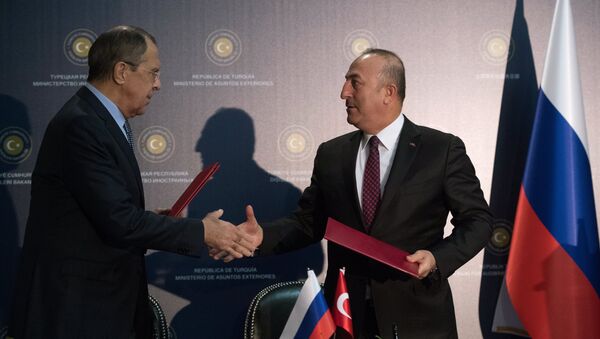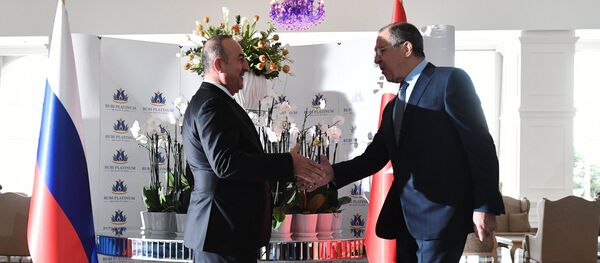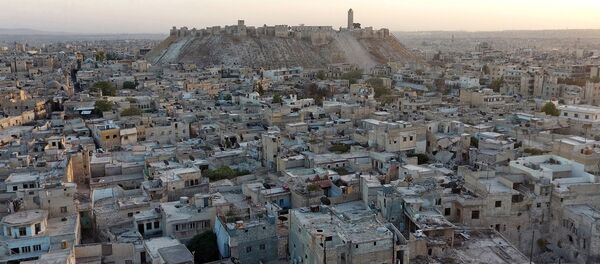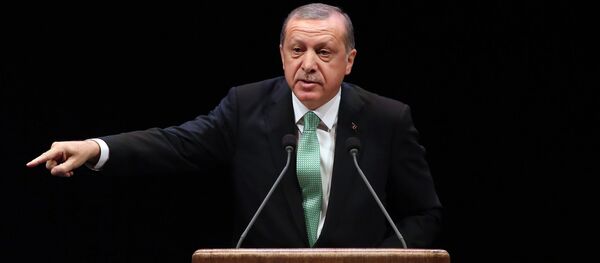The last JSPG meeting was held in Moscow in May 2014, and the renewal of the format suggests that Moscow and Ankara are keen to develop their bilateral relations, Eurasian affairs analyst Hasan Selim Ozertem told Sputnik Turkiye.
"In particular you can say that the growing tension in the Syrian theater of war, after Turkish troops were killed at El-Bab, and the declaration by Turkish President Recep Tayyip Erdogan about Bashar Assad, became the major topic on the agenda for the Foreign Ministers of both countries," Ozertem said.
On November 24 the Turkish military alleged that three Turkish soldiers were killed in an airstrike by Syrian government forces close to the city of El-Bab in northern Syria. However, according to other accounts the soldiers were killed by a Daesh suicide bomb.
When he met Cavusoglu, Lavrov reiterated that neither Russian nor Syrian forces were involved in the attack on the soldiers.
The two ministers also discussed preparations for the upcoming High-Level Russian-Turkish Cooperation Council meeting that will be attended by the leaders of both countries early next year, and the construction of the Akkuyu Nuclear Power Plant, in collaboration with Russia's Rosatom.
"The energy issue also received a lot of attention. The parties took a clear position on the 'Turkish Stream' project and the continued construction of the Akkuyu nuclear power plant," Ozertem told Sputnik.
It is also vital that Russia and Turkey maintain constant and open lines of communication, given the unstable situation in Syria.
To this end, Russian President Vladimir Putin and Turkish President Recep Tayyip Erdogan have spoken telephone three times this week, in indication of their efforts to help regulate the Syrian crisis, Ozertem remarked.
"The balance of power in Syria changes every day, and both parties have taken positions in the region by strengthening their military presence. Beginning in 2017, we can expect different political initiatives due to Trump coming to power in the US. And up to now we have seen that the big players in the region – Russia and Turkey – try again and again to concretize their positions on the territorial integrity of Syria. From that point of view it's important that the channels of communication on the political and military levels remain open, and also on the level of heads of state. For that, of course, it is necessary to hold these bilateral meetings."
"It is highly probable that after 2017, when the 'Turkish Stream' project becomes clearer, relations will develop in a different way. This is due to the fact that 'Turkish Stream' is expected to become one of the main arteries through which gas will flow not only to Turkey, but also to Europe. From this perspective, Turkey and Russia will start talking about gas not only in the context of bilateral relations, but also to build a partnership on the basis of contacts in Europe. And this is a new situation in which we go beyond the limits of what has constituted Russian-Turkish relations over the past 30 years."
"Here, of course, there are a number of pitfalls. The first is the Syrian issue, and the differences in position which are observed in Turkey and Russia. Another factor is the direction in which relations between Russia and the West will develop in the future. In addition, the form of further interaction between the West and Turkey can lead to both opportunities and considerable difficulties. Here I am referring to Turkey's rhetoric regarding the Shanghai Cooperation Organization and, accordingly, the dialogue that it will build with Russia. So, in 2017 we will see what form that dialogue takes on," Ozertem said.





